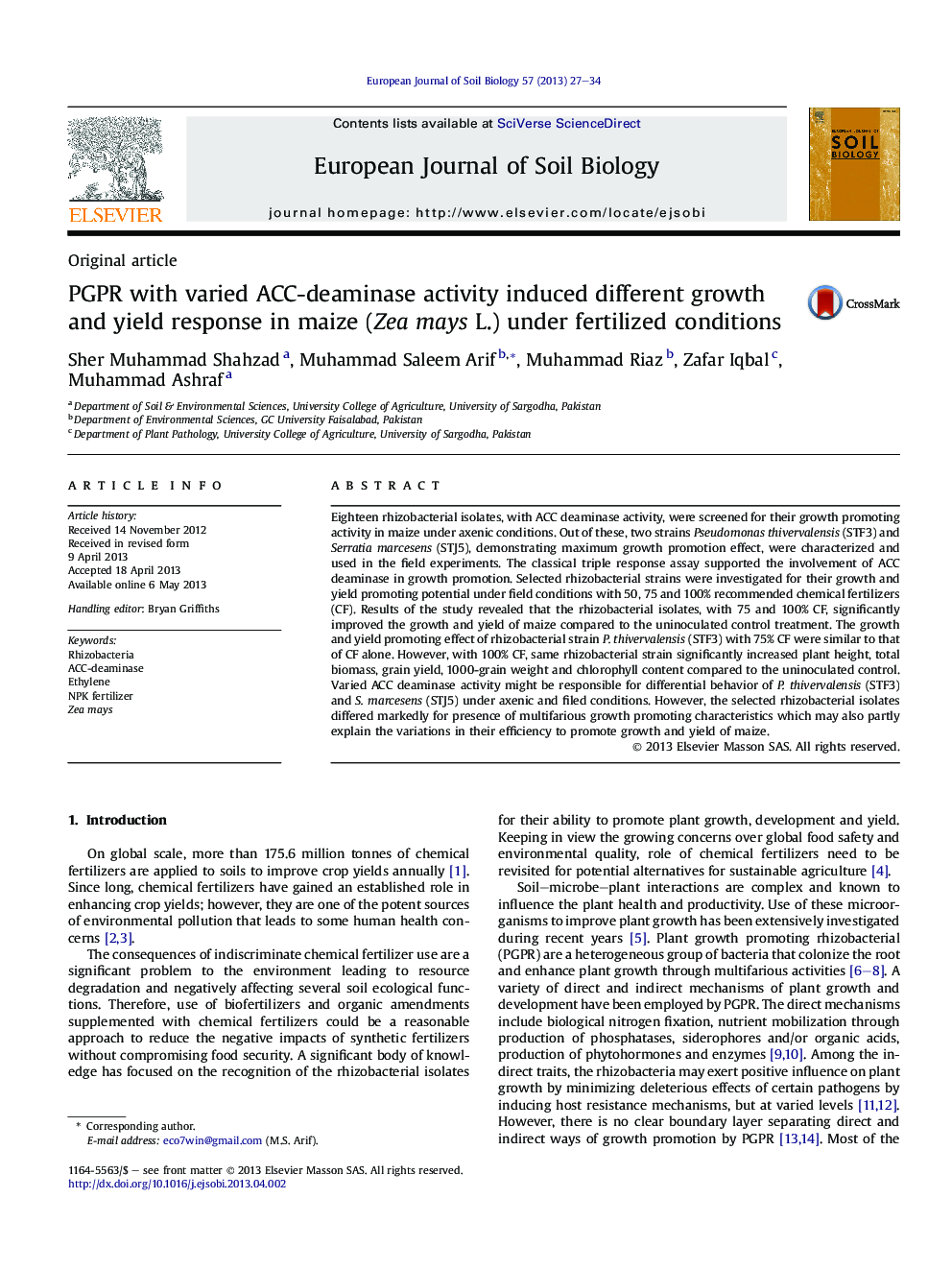| Article ID | Journal | Published Year | Pages | File Type |
|---|---|---|---|---|
| 6303046 | European Journal of Soil Biology | 2013 | 8 Pages |
Abstract
Eighteen rhizobacterial isolates, with ACC deaminase activity, were screened for their growth promoting activity in maize under axenic conditions. Out of these, two strains Pseudomonas thivervalensis (STF3) and Serratia marcesens (STJ5), demonstrating maximum growth promotion effect, were characterized and used in the field experiments. The classical triple response assay supported the involvement of ACC deaminase in growth promotion. Selected rhizobacterial strains were investigated for their growth and yield promoting potential under field conditions with 50, 75 and 100% recommended chemical fertilizers (CF). Results of the study revealed that the rhizobacterial isolates, with 75 and 100% CF, significantly improved the growth and yield of maize compared to the uninoculated control treatment. The growth and yield promoting effect of rhizobacterial strain P. thivervalensis (STF3) with 75% CF were similar to that of CF alone. However, with 100% CF, same rhizobacterial strain significantly increased plant height, total biomass, grain yield, 1000-grain weight and chlorophyll content compared to the uninoculated control. Varied ACC deaminase activity might be responsible for differential behavior of P. thivervalensis (STF3) and S. marcesens (STJ5) under axenic and filed conditions. However, the selected rhizobacterial isolates differed markedly for presence of multifarious growth promoting characteristics which may also partly explain the variations in their efficiency to promote growth and yield of maize.
Related Topics
Life Sciences
Agricultural and Biological Sciences
Soil Science
Authors
Sher Muhammad Shahzad, Muhammad Saleem Arif, Muhammad Riaz, Zafar Iqbal, Muhammad Ashraf,
